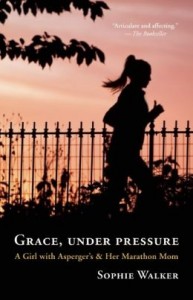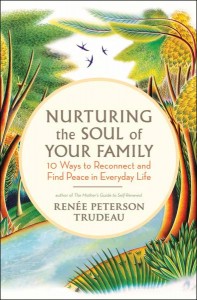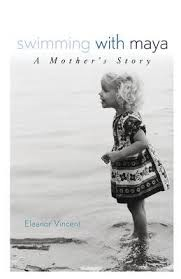by Tina Games | Dec 2, 2013 | Connection, Inner Peace, Inner Wisdom, Journal Writing, Moon Phases
 Like the moon, we all go through phases in our lives. We have ups and downs, we go forward and backward – and sometimes we seem to circle back around. We may hide behind the clouds or peek from beneath the clouds. But in the midst of what can feel like a blackout, when we are open to making a connection with our authentic self, we can get to a point where we’re able to beam with full light.
Like the moon, we all go through phases in our lives. We have ups and downs, we go forward and backward – and sometimes we seem to circle back around. We may hide behind the clouds or peek from beneath the clouds. But in the midst of what can feel like a blackout, when we are open to making a connection with our authentic self, we can get to a point where we’re able to beam with full light.
During a new moon phase, the sky is completely black, with the exception of little sparkles of light in the form of stars. It’s the point in every month when the moon takes a retreat and begins to grow again, redoubling her light and reflecting new creative energy on all worldly things.
(more…)
by Tina Games | Aug 23, 2013 | Inner Peace, Inner Wisdom, Life Purpose, Life Story, Motherhood, Personal Growth

Grace, Under Pressure: A Girl with Asperger’s and Her Marathon Mom
In my work as a creativity coach and life purpose intuitive, I gently guide mothers on a path through their own life story – connecting the dots of what I call “pivotal life moments.” It’s these moments that bring a deeper, richer understanding of one’s life purpose.
By following the “dot-to-dot” – a life theme begins to emerge, creating a beautiful ripple of divinely-inspired choices that impact not only the life of the mother, but those around her – including her children. It’s this theme that serves as a guiding light for any mother who is looking to understand her own life path with crystal clear clarity, as she decides what the right next steps are for herself and for her family.
In the book, Grace, Under Pressure: A Girl with Asperger’s and Her Marathon Mom, author Sophie Walker takes the reader on a journey through a series of pivotal life moments that involve her daughter’s diagnosis and the impact it has on her own health. Through many trials and tribulations, Sophie ultimately discovers her own inner strength through marathon running and uses it to advocate for her daughter’s education, happiness, and future – inspiring both parents and athletes alike.
Being a parent is one of the most challenging jobs there is. And when you have a child who doesn’t fit with society’s expectations, that challenge can turn into a marathon undertaking as Sophie learned in her role as mother to her daughter, Grace.
I’ve invited Sophie to join me here today for an open and honest dialogue about her journey as a marathon mom.
******************
Why did you write this book?
Here’s a funny thing. All my life I’ve wanted to be a writer. I am that big cliché: the journalist who actually only really wanted to be a novelist. But I never intended to write this book. I have several others, half-finished, or discarded, or mid-research, tucked away on my computer’s hard drive. Grace, Under Pressure, however, started off as simply an exercise in getting my thoughts out of my head before they drove me insane. Every day, on my commute to work, I would write down in a notebook the latest experiences of my daughter, who had just received an autism spectrum diagnosis, as well as my responses. I thought that maybe if I put everything down in words in front of me, I might be able to make sense of what we were going through, and see whether I was taking the appropriate action to help her. Much of our daily life felt like a struggle or just torrents of experience and emotion that were hard to parse in the moment.
After a week or two of sitting on the tube scribbling frantically, I thought: I wonder if anyone else is going through this. The sense of isolation was overwhelming – Grace was being bullied in school, I was struggling to understand her diagnosis and her needs and feeling like I was failing her as a parent, and there seemed to be a thicket of bureaucracy in front of us every time I asked for advice. But I was sure we couldn’t be the only ones to be feeling our way, nor to be feeling so lonely. So I asked Grace that night what she thought about us writing a blog about our experiences. Her answer was an enthusiastic yes. She was as fed up as I of feeling lonely and worried. So I started blogging about our journey. Before long, the blog was being read by tens of people, then hundreds, then thousands, and we were inundated by messages of support from other parents and children saying: “We feel like that too! We thought we were alone too!” And then someone said, “You know, you really should talk to an editor I know …” And that was the beginning of the book. If it stops just one person from feeling lonely or outfaced, then it’s done a good job.
Was it a risk to write so publicly about your daughter?
It was something I thought very hard about. Grace felt very misunderstood and confused about herself. She thought she was stupid. I wanted to tell people how fabulous she was, and show her too in the process. She read every blog entry. There was a lot I did not write about. When the book was mooted, I asked her permission, worried that she might feel differently when she’s a bit older about being in the public eye. But she feels stronger and more confident to have a voice like this. It helps her assert and embrace her differences, she says. Of course, she may feel differently when she’s older. But right now, it’s helping, and I’ve watched her self-confidence grow. Grace isn’t defined by her Aspergers, but it’s as much a part of her as the color of her eyes and her sense of humor. She took the decision to be open about it and sees no reason to make it a secret. And in my experience of meeting other children with AS, the happiest and most confident ones are those who don’t feel it’s something to be ashamed of.
Do you have any regrets about being so honest about your own struggles with depression?
I have no regrets about writing so honestly. Not one. That’s not to say I don’t feel terrified sometimes over the thought of someone I know reading the book! Somehow it’s easier to peel your soul in front of complete strangers than to have someone in the office know how you’ve really been feeling for big chunks of time over the last few years. But I’ve never wished I hadn’t written this book. There is still such a stigma attached to mental health issues I think. If someone’s off work because they’ve broken their leg then that’s an easy thing to understand. If someone’s off work because they simply cannot get out of bed and/or stop crying – that’s a lot tougher. Depression can seem like a very self-indulgent illness, like something that you allow to overcome you, in a way that other forms of ill-health do not, because they seem more like bad luck things that happen to you – like breaking your leg, or finding out that you have cancer. Talking and writing about mental health is an important way to change these perceptions. Depression is an illness that can strike anyone. And it’s really, really horrible.
What made you decide to start running?
I’d been running short distances, off and on, before I got into the serious stuff. I used to work very long, intense hours in an exciting, 24-7 job and needed something to work off the stress. I also used to smoke, and running was a very physical reminder of what I was doing to myself if I over-indulged! Then I stopped – both the running and the smoking – when I got pregnant with my second daughter Betty. The running that I started to do again later, when Grace was diagnosed, immediately felt very different. It felt like an act of desperation at times. I would run and cry and curse to the skies sometimes – it was all very full on! But it was a wonderful, wonderful way to work through my feelings, to get some time on my own, and to put myself back together – literally. I knitted new muscle and developed stronger lungs and built my mental strength and endurance. Running made me into Super Mom for Gracie. It’s still the best thing I know for an instant lift. In fact, writing this, I’m finding it hard not to get up and go and put on my shoes and get outside as fast as I can!
What words of advice would you offer to parents of children with autism or other special needs?
First: don’t suffer in silence, and don’t suffer alone. You are not alone! There is a huge, wonderful community out there waiting to welcome you and to help you.
Second: don’t let the tough times define you and your child. You have a very special child who experiences life in ways you could never have imagined. Listen, and learn.
Third: when you don’t feel like listening and learning, that’s fine too! Do NOT feel guilty about taking some time for yourself. In fact, it’s essential that you do. If you’re going to be the glue that keeps everything else together then you have to be strong, and you can only be that if you are looking after yourself. (Ever thought about running?!)
What advice would you offer to parents whose kids are being bullied at school?
Lots of people will try to persuade you that it’s not really happening, or that it’s not as important as your kid says, or that the problem is your kid. Ignore these people. Trust your kid, and trust your instincts about your kid. You know better than anyone else in the world whether your kid is okay. The mental bruises that bullying inflicts on children can stay with them for life. The experience of being bullied can change the kind of person your child grows up to be. Bullying is an absolute no-no. Do not stand for it. Do not let anyone persuade you that it’s not really a problem. Roar as loudly about it as you can. And write down every single incident. Keep a file. If after some time has passed you are still talking to the teachers about this stuff and you are still feeling that they’re not listening, then it’s time to think about a new school.
Do you feel that Asperger’s Syndrome is a disability? Why or why not?
I’ve been over this one countless times in my head and have come to the conclusion that it’s neither. It just is what it is. Having Aspergers means there are some things that Grace finds difficult. That means she will need extra help to learn about and understand those difficulties in order to overcome them or learn to live with them. But having Aspergers means there are some things that Grace is gloriously, wondrously good at. These are super-abilities. Neither one equals out the other. She is different, not less, to quote the wonderful Temple Grandin.
If you could change anything about you and your daughter’s experience, what would it be?
I wish I had known earlier about her autism. I was going to write ‘we’ but really, selfishly, I wish I had known much earlier, when Grace was still a baby, so that I could have reached an understanding of it ahead of time, so that I could have got her the support and help she needed earlier, and been better equipped to steer her through the tough times (of which hopefully there would have been fewer) and more able to focus on the fabulous stuff. I would remove all instances of bullying. Oh, for a magic wand to erase all that and to never, ever see that look of hurt on her face.
What is the next big challenge for you and Grace?
Secondary school is the big one at the moment. Grace is moving out of primary education into secondary education, which involves all sorts of new challenges and changes of routine – bigger school, more kids, new subjects, different classrooms. It also offers her the opportunity to really stretch herself in the subjects she’s very good at, and to meet other people with similar interests. Luckily she’s going to a fantastic school that offers wonderful pastoral care to all of its students, as well as a great learning ethos. She’s very excited to be moving forward. And I’m so pleased and proud to be watching her bloom.
*********
Sophie Walker is the author of Grace, Under Pressure. She has been a reporter for Reuters News Agency for sixteen years and has worked as a foreign correspondent traveling to Iraq and Afghanistan with Prime Ministers Tony Blair and Gordon Brown. She lives in London. Visit her online at http://www.courage-is.blogspot.com or on Twitter @sophierunning.
by Tina Games | Mar 15, 2013 | Authenticity, Inner Goddess, Inner Peace, Self-Care
 As a creativity coach and life purpose intuitive, I attract mothers who desire a more spiritual and authentic approach to life, one that’s filled with purpose, passion and creative expression.
As a creativity coach and life purpose intuitive, I attract mothers who desire a more spiritual and authentic approach to life, one that’s filled with purpose, passion and creative expression.
In our work together, whether it’s through private or group coaching – or in a workshop or at a weekend retreat – I gently guide moms on a journey of self-discovery by inviting them to explore the areas of their life that feel out of balance. This invites deeper questioning around the concept of “wholeness” – and what emotional, spiritual, and practical shifts may be needed to bring life more into balance.
In order to attract and manifest a more fulfilling lifestyle, it’s important that mothers connect with their own sense of what it means to feel grounded, at peace – and more complete. This is what opens the door to a deeper relationship with self – and a more authentic connection to the external world.
Today, I’ve invited Renee Peterson Trudeau, author of Nurturing the Soul of Your Family to share a few words of wisdom about reconnecting and finding peace in every day life.
Here’s what she had to say as it relates to Five Ways to Nourish and Renew Your Spirit:
*****************************
It’s 1976, and my mom and dad are sitting quietly with their eyes closed, hands resting upward — thumb and index finger touching — while my younger siblings crawl on their backs and shoulders. My older two brothers and I sit nearby, holding our own meditation poses, bored, rolling our eyes and counting the minutes until this ritual will end.
At least once a week or whenever things got stressful, my parents would pull all five of their children — ranging in age from ten to one — into our library for a family meditation. As much as I complained, a part of me yearned for this spiritual practice.
Spiritual renewal is essential to our emotional well-being. It helps us nurture our essence, feel centered, build inner strength, live in integrity, and trust life. It allows us to experience a connection to a higher power, feel a sense of purpose, and experience meaning in our lives.
There are many different ways we explore and nurture our spiritual lives. For some this includes spending time in nature, yoga, prayer and meditation, or musical or artistic expression. Some of the daily practices that provide me spiritual nourishment include:
Creating Ritual
We all crave sacredness and ritual in our everyday lives — not just around birthdays and weddings. Rituals can be both carefully planned events and casual but regular remembrances such as voicing gratitude before a meal or creating dedicated space in your day for contemplation.
When we mark important transitions or milestones in our lives — whether it’s your daughter’s first period or your son starting kindergarten — we connect to the sacredness of everyday life. We remember that life is mysterious and we’re more than our to-do lists!
Cultivating Stillness
Stillness, whether experienced through prayer, meditation, or reflection, is our time to be alone and connect to our inner wisdom or our higher power — what I call our internal GPS system. It’s essential for all of us to carve out time for quiet reflection each and every day.
One of the biggest gifts I’ve received from a daily meditation practice is the ability to live more comfortably with what is–whether that’s my husband’s recent layoff or a car accident. Life is like the weather in Texas — constantly changing. Meditation has helped anchor me, so that despite this impermanence and turmoil, I’ve learned how to be still and find my center in the face of it all.
Practicing Service to Others
Mother Teresa says, “The fruit of love is service.”
We are all interconnected. The more we reach out and are present to one another’s pain and suffering, the stronger we become and the easier it is to embrace the esoteric idea that we’re all one. I believe huge shifts in consciousness can occur when we reach out and help one another navigate this sometimes scary, often isolating and perplexing, but beautiful world. Sometime that might look like serving soup at your local homeless shelter and other times, it’s helping out your neighbor who just lost her husband.
Living in the Present
Many great spiritual teachers believe the answer to everything is to just “be here now,” and that our suffering and emotional distress would end if we simply stopped resisting the present moment.
One weekend as I sat on the couch with a full-body cold: a splitting headache, body chills and a nonstop runny nose, I thought about this principle. And, as I watched the things I was missing fly out the window — my friend’s birthday party, my son’s piano recital — I connected to my breath and felt myself arrive in the present moment. I sensed my resistance begin to dissipate and a feeling of peace slowly settled over me. I temporarily suspended my desire for things to be different and I embraced that on the couch, with a cold, was exactly where I was supposed to be.
Choosing Happiness
Three of my immediate family members died unexpectedly between my twenty-sixth and thirty-fourth birthdays. For years I let those losses dictate how much and how often, I could experience joy. Anytime I started to feel light, free, or happy, the old feeling of “waiting for the other shoe to drop” would creep in.
Can you only be happy if things are going your way and all the stars are aligned in your favor?
I believe we’re born with the innate capacity to experience emotional well-being and joy; it’s our birthright to feel good. Happiness comes from within; we’re wired for it. We just have to remember to choose this moment to moment.
It’s easy to forget who we really are. To lose sight of what really matters. To fall asleep and not remember how interconnected we all are and that we’re fully human and, at the same time, divine.
A regular spiritual practice — whether that’s daily prayer or meditation, being in a spiritual community, or singing— serves to anchor us. It grounds us and helps us navigate the challenges we face from just being human. It helps us stay awake.
So ultimately, we can begin to let go, trust the rhythm and flow of life and relax into the beauty of our true nature.
*********
Life balance coach/speaker Renée Peterson Trudeau is the author of the new book Nurturing the Soul of Your Family. Thousands of women in ten countries are participating in Personal Renewal Groups based on her first book, the award-winning The Mother’s Guide to Self-Renewal. Visit her online at www.ReneeTrudeau.com
Based on the new book Nurturing the Soul of Your Family ©2013 Renée Peterson Trudeau. Published with permission of New World Library http://www.newworldlibrary.com
 We all come to periods in our lives when we sit down and reflect on the path we have chosen – sometimes regretting certain choices and missed opportunities.
We all come to periods in our lives when we sit down and reflect on the path we have chosen – sometimes regretting certain choices and missed opportunities.



